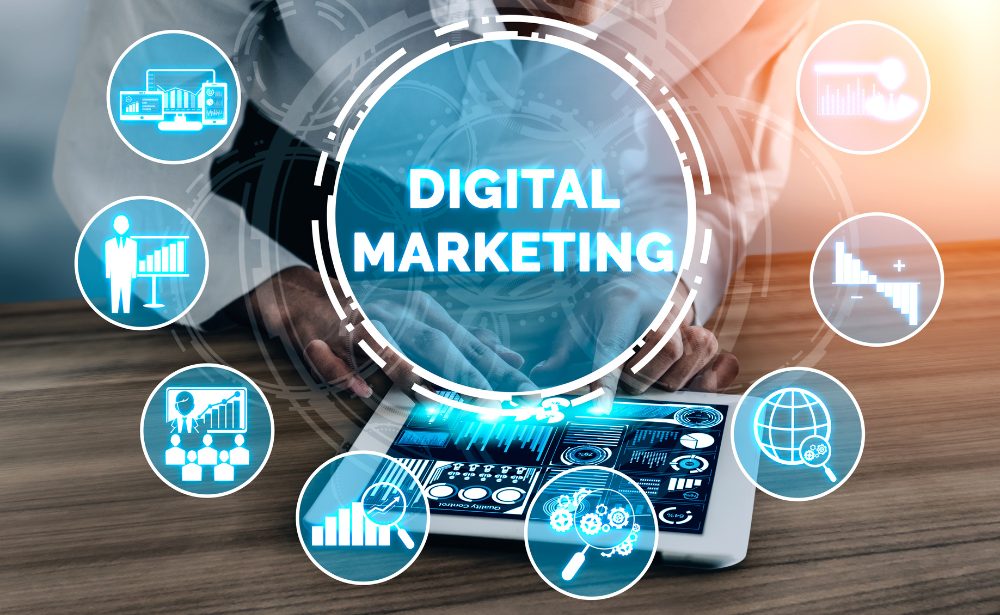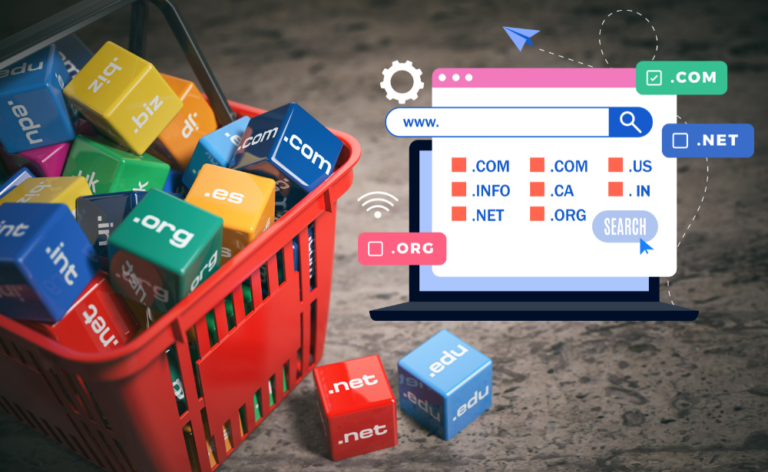Staying ahead of the latest trends is crucial for any business looking to thrive in 2024. From the rise of artificial intelligence to the increasing importance of data privacy, this year is set to bring significant changes to the world of digital marketing.
In this article, we’ll explore the key trends you can’t afford to ignore and provide insights on leveraging them to boost your marketing efforts.
The Rise of Artificial Intelligence (AI)
AI in Customer Service
Artificial intelligence is transforming customer service by enabling more efficient and personalized interactions. Chatbots and virtual assistants are becoming increasingly sophisticated, offering 24/7 support and handling a wide range of customer queries. Businesses that integrate AI into their customer service strategies can benefit from:
- Improved Efficiency: AI can handle routine inquiries, freeing up human agents to focus on more complex issues.
- Cost Savings: Automated customer service can reduce operational costs.
- Enhanced Customer Experience: AI provides quick, accurate responses, leading to higher customer satisfaction.
AI in Marketing Automation
AI is also revolutionizing marketing automation by providing advanced data analysis and predictive analytics. This allows marketers to create more targeted and effective campaigns. Key benefits include:
- Personalized Campaigns: AI can analyze customer data to create highly personalized marketing messages.
- Predictive Analytics: AI can forecast trends and customer behaviors, helping marketers make informed decisions.
- Optimization: AI can continuously optimize campaigns in real-time, improving ROI.
The Growing Importance of Data Privacy
Stricter Regulations
Data privacy has become a major concern for consumers and regulators alike. With stricter regulations like the General Data Protection Regulation (GDPR) and the California Consumer Privacy Act (CCPA), businesses must prioritize data protection. Key steps to take include:
- Compliance: Ensure your data practices comply with all relevant regulations.
- Transparency: Be transparent with customers about how their data is used.
- Security: Invest in robust data security measures to protect customer information.
Building Trust Through Privacy
Consumers are becoming more aware of their data rights and are more selective about the companies they trust with their information. By prioritizing data privacy, businesses can build trust and foster long-term customer relationships. Benefits include:
- Enhanced Reputation: Companies that prioritize data privacy are seen as more trustworthy.
- Customer Loyalty: Customers are more likely to remain loyal to brands that protect their data.
- Competitive Advantage: Data privacy can be a key differentiator in a crowded market.
The Evolution of Social Media Marketing
The Rise of Short-Form Video
Short-form video content continues to dominate social media, with platforms like TikTok, Instagram Reels, and YouTube Shorts gaining massive popularity. To capitalize on this trend, marketers should:
- Create Engaging Content: Short, engaging videos can capture attention quickly and drive higher engagement.
- Leverage Trends: Stay up-to-date with the latest trends and incorporate them into your content.
- Utilize Influencers: Partner with influencers who have a strong presence on short-form video platforms.
Social Commerce
Social commerce, the integration of e-commerce and social media, is on the rise. Platforms like Instagram, Facebook, and Pinterest are enhancing their shopping features, allowing users to purchase products directly through social media. Key strategies include:
- Shoppable Posts: Create posts that link directly to product pages, making it easy for users to purchase.
- Live Shopping: Host live shopping events where users can buy products in real-time.
- User-Generated Content: Encourage customers to share their purchases on social media to drive word-of-mouth marketing.
The Power of Content Marketing
Quality Over Quantity
In 2024, the focus is shifting from producing a high volume of content to creating high-quality, valuable content. Businesses should prioritize:
- In-Depth Content: Create comprehensive, well-researched content that provides real value to your audience.
- Storytelling: Use storytelling to make your content more engaging and memorable.
- Visual Content: Incorporate visuals like infographics, videos, and images to enhance your content.
Interactive Content
Interactive content is becoming increasingly popular as it engages users more effectively. Examples of interactive content include:
- Quizzes: Create fun and informative quizzes that relate to your industry.
- Polls and Surveys: Use polls and surveys to gather insights and engage your audience.
- Interactive Infographics: Develop infographics that allow users to interact with the data.
The Impact of Voice Search
Optimizing for Voice Search
With the growing popularity of voice-activated devices like Amazon Alexa, Google Assistant, and Apple’s Siri, optimizing for voice search is essential. Key strategies include:
- Conversational Keywords: Use natural, conversational language in your content.
- Featured Snippets: Aim to appear in featured snippets, as voice assistants often read aloud.
- Local SEO: Optimize for local search queries, as many voice searches are location-specific.
Voice Commerce
Voice commerce is rising, with more consumers using voice commands to make purchases. To capitalize on this trend, businesses should:
- Simplify the Buying Process: Ensure your purchasing process is straightforward and voice-friendly.
- Offer Voice-Exclusive Deals: Encourage users to purchase voice by offering exclusive discounts.
- Promote Voice Capabilities: Highlight your voice commerce capabilities in your marketing efforts.
The Importance of Personalization
Hyper-Personalization
Personalization has always been important, but in 2024, hyper-personalization is taking center stage. This involves using AI and data analytics to deliver highly personalized experiences. Benefits include:
- Increased Engagement: Personalized content is more relevant and engaging.
- Higher Conversion Rates: Personalization can lead to higher conversion rates by delivering tailored experiences.
- Customer Loyalty: Customers are more likely to remain loyal to brands that understand and cater to their needs.
Personalization Strategies
Effective personalization strategies include:
- Dynamic Content: Use dynamic content that changes based on user behavior and preferences.
- Behavioral Targeting: Target users based on their past behavior and interactions.
- Predictive Recommendations: Use AI to predict and recommend products or content that users will likely be interested in.
The Shift to Omnichannel Marketing
Integrating Online and Offline Channels
Omnichannel marketing involves creating a seamless experience across all online and offline channels. Benefits include:
- Consistency: Ensure a consistent brand message across all touchpoints.
- Convenience: Provide a seamless experience for customers, whether they’re shopping online or in-store.
- Data Integration: Integrate data from all channels to comprehensively view customer behavior.
Strategies for Omnichannel Marketing
Key strategies for successful omnichannel marketing include:
- Unified Messaging: Ensure your messaging is consistent across all channels.
- Cross-Channel Promotions: Run promotions that span multiple channels to reach a wider audience.
- Customer Journey Mapping: Map out the customer journey to identify key touchpoints and optimize the experience.
The Growth of Influencer Marketing
Micro-Influencers
While big-name influencers continue to be popular, there’s a growing trend towards micro-influencers. These are influencers with smaller but highly engaged followings. Benefits include:
- Higher Engagement: Micro-influencers often have higher engagement rates.
- Authenticity: Micro-influencers are seen as more authentic and relatable.
- Cost-Effective: Partnering with micro-influencers can be more cost-effective than working with larger influencers.
Long-Term Partnerships
Long-term partnerships with influencers are becoming more common, providing benefits such as:
- Consistency: Long-term partnerships ensure a consistent brand message.
- Deeper Relationships: Build deeper relationships with influencers and their audiences.
- Better ROI: Long-term partnerships can provide better ROI compared to one-off campaigns.
Embracing Sustainability and Social Responsibility
Eco-Friendly Practices
Consumers are increasingly looking for brands that prioritize sustainability and social responsibility. Key strategies include:
- Sustainable Products: Offer eco-friendly products and packaging.
- Transparent Practices: Be transparent about your sustainability efforts.
- Cause Marketing: Support causes that align with your brand values.
Communicating Your Efforts
Effectively communicating your sustainability efforts can enhance your brand reputation. Strategies include:
- Content Marketing: Create content that highlights your sustainability initiatives.
- Social Media: Use social media to share your sustainability story.
- Certifications and Labels: Obtain certifications and labels that validate your sustainability claims.
FAQs
What is the biggest digital marketing trend for 2024?
Artificial intelligence is one of the biggest trends, transforming customer service, marketing automation, and personalization.
Why is data privacy important in digital marketing?
Data privacy is crucial because it builds consumer trust and ensures compliance with regulations like GDPR and CCPA.
How can businesses benefit from short-form video content?
Short-form video content captures attention quickly, drives higher engagement, and is highly shareable on social media platforms.
What is omnichannel marketing?
Omnichannel marketing involves creating a seamless and integrated experience across all online and offline channels, ensuring customer consistency and convenience.
Why should businesses focus on sustainability in their marketing efforts?
Focusing on sustainability can enhance brand reputation, build customer loyalty, and differentiate your brand in a competitive market.
Conclusion
The digital marketing landscape is constantly evolving, and staying ahead of the latest trends is crucial for success in 2024.
By embracing artificial intelligence, prioritizing data privacy, leveraging social media, focusing on content quality, optimizing for voice search, personalizing experiences, adopting an omnichannel approach, partnering with influencers, and committing to sustainability, you can position your brand for growth and success.
Stay informed, be adaptable, and innovate to make the most of these trends.







